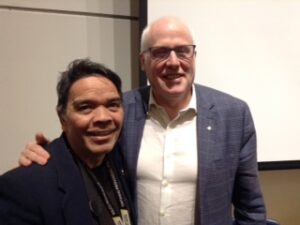Human rights violation in the Philippines, then and now….
 Human rights violation in the Philippines, then and now…..MARCH 8,2021
Human rights violation in the Philippines, then and now…..MARCH 8,2021
Growing up in the heart of Manila where I was born, everything looked bright to me. I felt safe playing in the streets with my two younger siblings. My parents never had any cause to worry for our safety. The country which suffered at the hands of the Japanese Imperial Army during the war was experiencing a rebirth and everyone was excited to be part of this rebirth.
I grew up hopeful about anything concerning the Philippines. This, however, changed gradually as the decades of the 60s and 70s came to be. A lawyer from the northern “part of the country got elected and the country seen as one of the most progressive in Southeast Asia became the outlier of the region. The debt of the country balloon as to where it goes, nobody knows. Job opportunities became very rare. And this was one of the reasons for my departure in 1974.
Ferdinand Marcos ruled the country for 20 years. His presence in Malacanang Palace where Philippine presidents stayed for the duration of their term was characterized as harsh, corrupt, and autocratic. The people surrounding him became rich; the military content. The marginalized became poorer and anyone suspected of seditious behaviour was picked up, held at a military camp for months, some even years, while abused physically. Human rights advocacies started raising their voices.
Those who can leave the country. Those who can’t wait patiently for their moment. And this moment came in September 1986 when the people rose in protest of a rigged election in favour of Marcos.
Forty-seven days after the founding in October 1945 of the United Nations in San Francisco USA, the organization came up with the Universal Declaration of Human Rights. This list carried 30 items. Among them which the Marcos regime had problems upholding were the right to life, liberty, personal security, freedom from torture and degrading treatment, right to recognition as a person before the law, freedom from arbitrary arrest and exile, right to free movement in and out of the country, freedom of opinion and information, right to peaceful assembly and association, right to the adequate living standard.
During the martial law regime in the Philippines which lasted for 14 years, the Philippine economy suffered tremendously from which it never fully recovered. The writ of habeas corpus was suspended and travel outside of the country became next to impossible. I left for Canada with a heavy heart two years after martial law was declared, hoping and praying that it would be lifted within the next several years but was disappointed it was not.
In Canada and during visits to NYC, I joined protests against the Marcos regime. I did this during weekends as I had to work during the weekdays. I submitted articles to a leading Filipino newspaper in Toronto. When the People Power Revolution happened, I was jubilant but did not stop. I supported people from other countries suffering a similar fate to that of the Filipinos during the Marcos era.
In 1994, I was appointed to the Immigration and Refugee Board to determine Convention refugee cases. I listened to claimants describe their suffering. Most were genuine claims. A few, bogus. I learned to discern. And I became acutely aware that human rights are being violated even as I write this piece. Now more than ever, with this pandemic, populist leaders have weaponized this virus as a means to further their personal agenda. I feel for the people in my old country whose present leader seems worse to me than Marcos was, as well as for other countries presently dealing with government practices that violate basic human rights.


